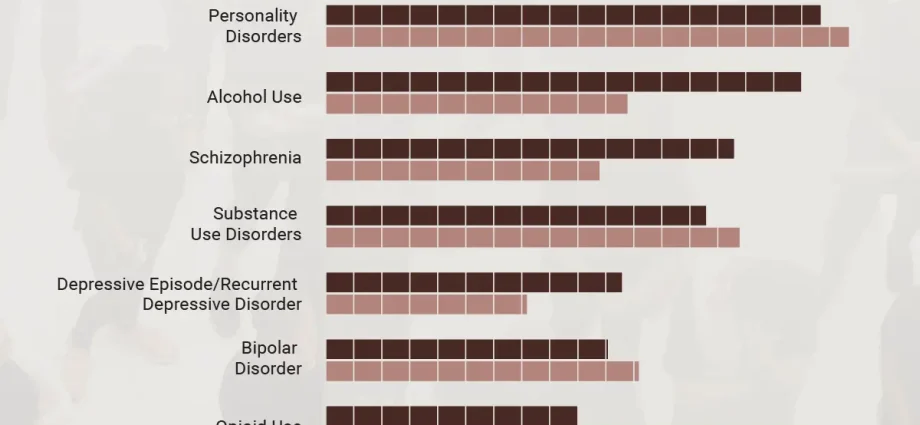Contents
The causes of most psychotic disorders are not precisely known. In their development, most likely, many genetic and psychological factors play a role, education and the environment matter. Here are some circumstances that can increase the likelihood of mental illnesses such as schizophrenia and bipolar disorder.
Although we do not yet understand all the causes and factors leading to psychosis, science is getting closer to understanding and describing the many possible mechanisms.
Biological risks
Biological models of psychotic disorders consider factors such as genetic predisposition, exposure to infections and toxins, allergies, and metabolic disorders. It is known that psychotic disorders are often found in relatives and members of the same family. For example, the risk of developing schizophrenia in an identical twin of a sick person is 40-60%, and in a “normal” brother or sister – 5-15%. In children with schizophrenia, the disease develops in 10% of cases (the average incidence for the population is about 1%). Substances such as ketamine or marijuana can trigger acute psychosis.
Pass the tests
- How do you experience loneliness?
According to modern concepts, there are many genes associated with the development of schizophrenia. Exposure to various hazards during fetal development or shortly after birth also increases the risk. The role of neurotransmitters (chemicals that transmit signals between nerve cells), especially serotonin, dopamine and glutamate, is also being investigated.
Recent studies have shown that there are certain underlying changes in the structure and function of the brain in schizophrenia, suggesting that this disorder may be at least partly related to problems in brain development. This theory is supported by the fact that autism is a risk factor for the development of psychosis in children. Psychosis generally occurs more often in people with an unhealthy psyche in the broadest sense of the word or suffering from some specific mental disorder.
Read more:
- “I have bipolar disorder”
Medical factors and addictions
There are also medical risk factors. For example, psychosis can be triggered by the use of steroid drugs. Women who have recently given birth rarely develop postpartum psychosis. More than 25% of mothers with bipolar I disorder develop postpartum psychosis (meaning that they have had at least one episode of mania, which is expressed in abnormally elevated mood and self-confidence, accelerated thinking and speech, motor arousal, reduced need for sleep ), and in more than 50% of mothers who suffer from bipolar disorder and have relatives who experienced postpartum psychosis. The risk of developing psychotic disorders in children of mothers suffering from such disorders is further increased if during pregnancy the mother was malnourished, experienced infections, suffered from hypertension, or had problems with the placenta. Exposure to harmful factors such as excessive alcohol consumption, tobacco or marijuana smoking, or other drug use is also associated with an increased risk of developing psychotic disorders.
Read more:
- Symptoms of schizophrenia sometimes disappear with age
Psychological factors
These include current or past mood disorders – anxiety disorders, major depressive disorder, bipolar disorder, social or general adjustment problems. Psychoses are more likely to occur in people who often have nightmares, tend to be suspicious of others who have unusual thoughts (paranoia, the feeling that an ordinary event has some special meaning associated personally with them), suffer from psychosomatic disorders. Research also shows that women who develop postpartum psychosis often have a history of domestic violence or childhood abuse, are often abandoned by their parents or caregivers, and often abuse alcohol or drugs. The risk of psychosis is also increased in people of any age who have experienced many difficulties in life, have poor housing conditions, or are from an ethnic minority in the place where they live.
More on medical MedicineNet.










